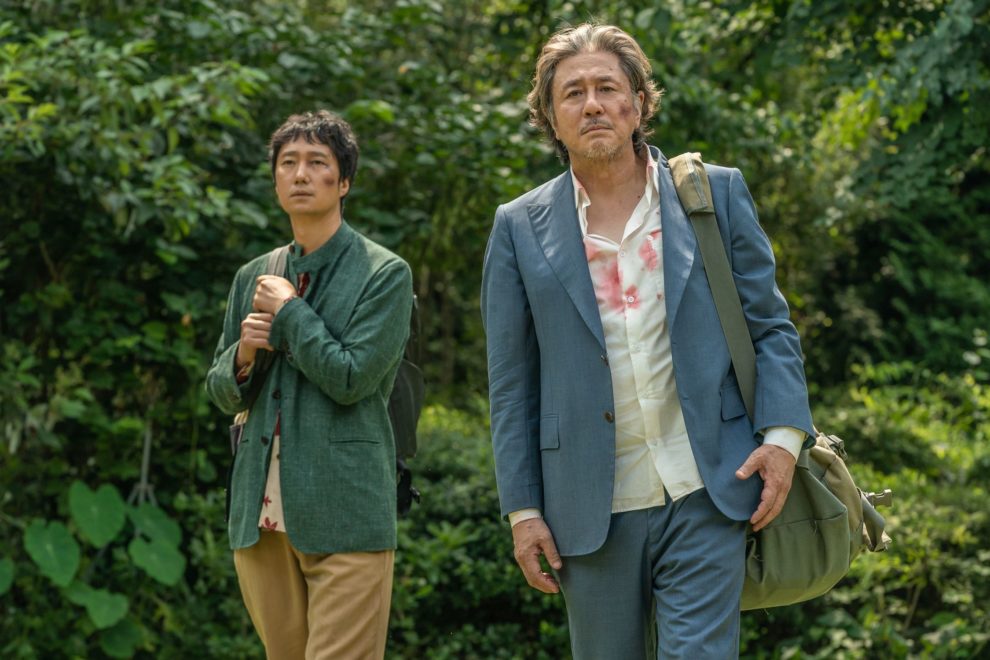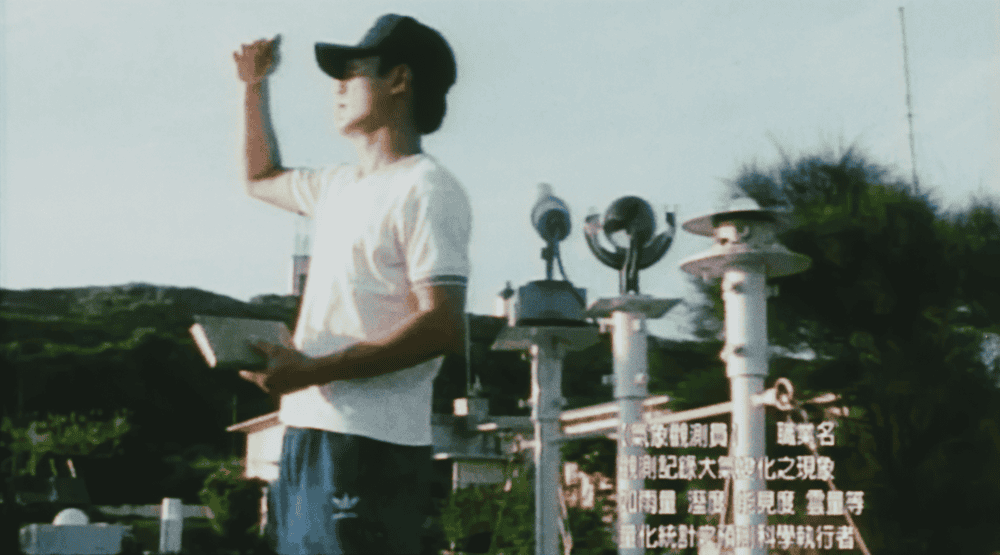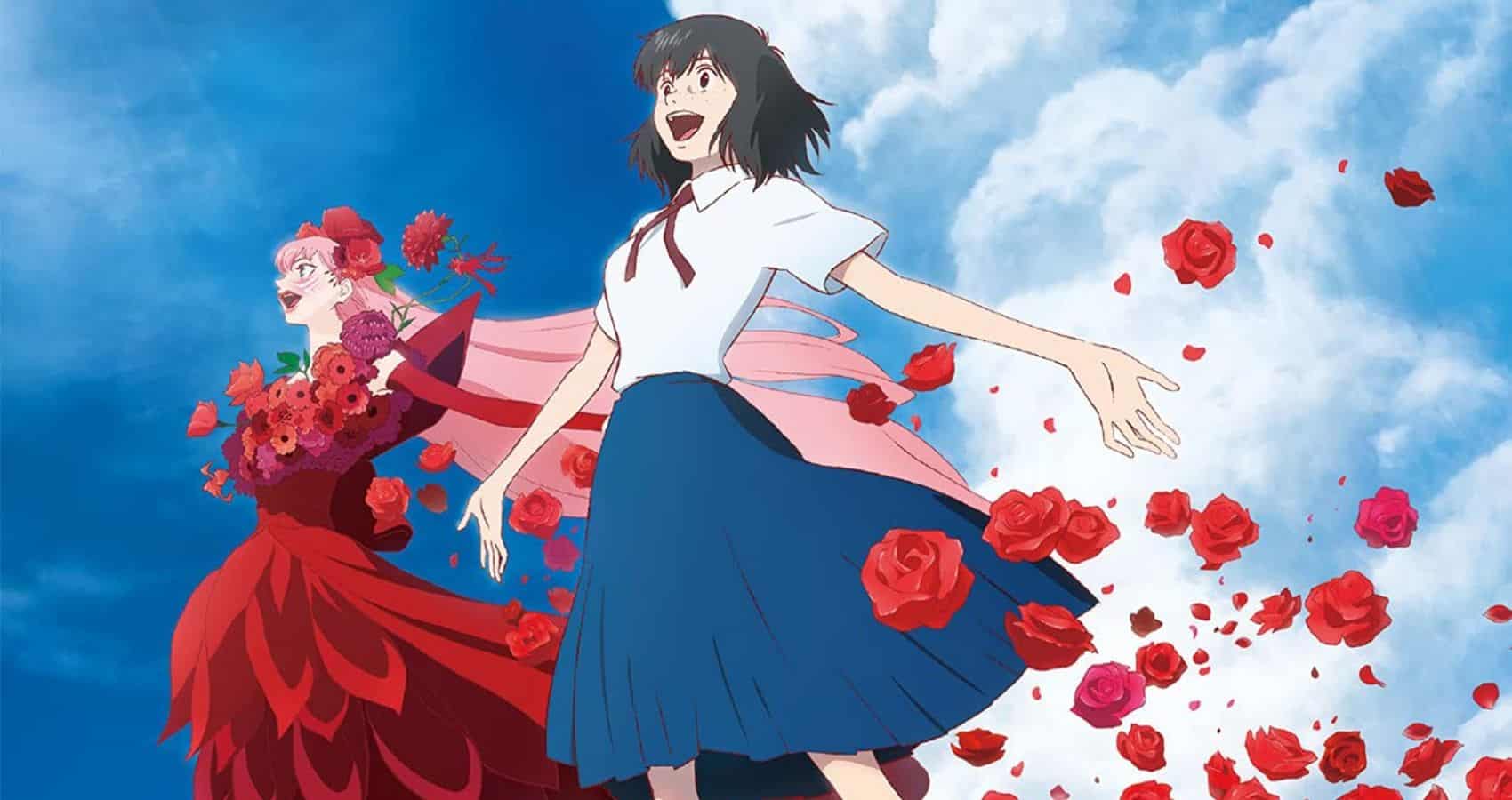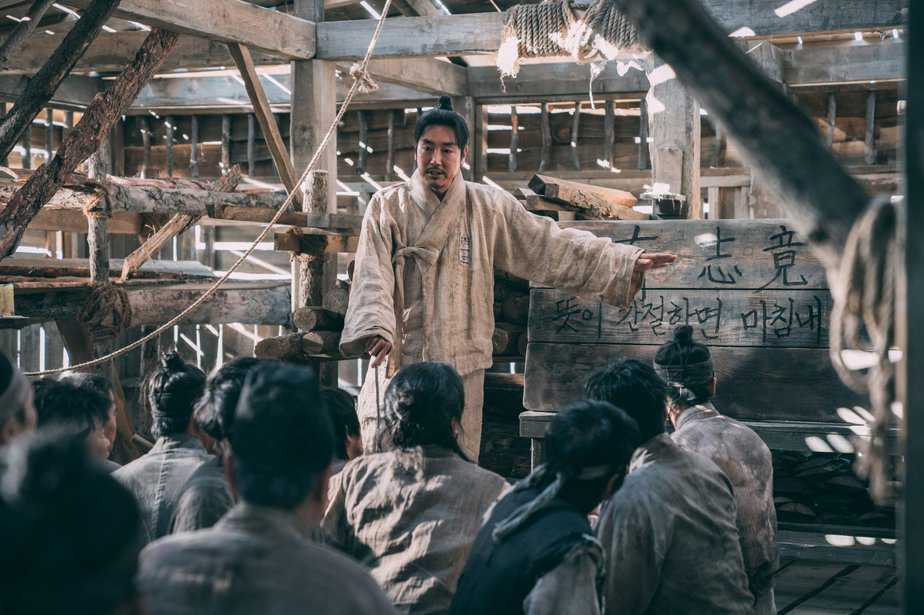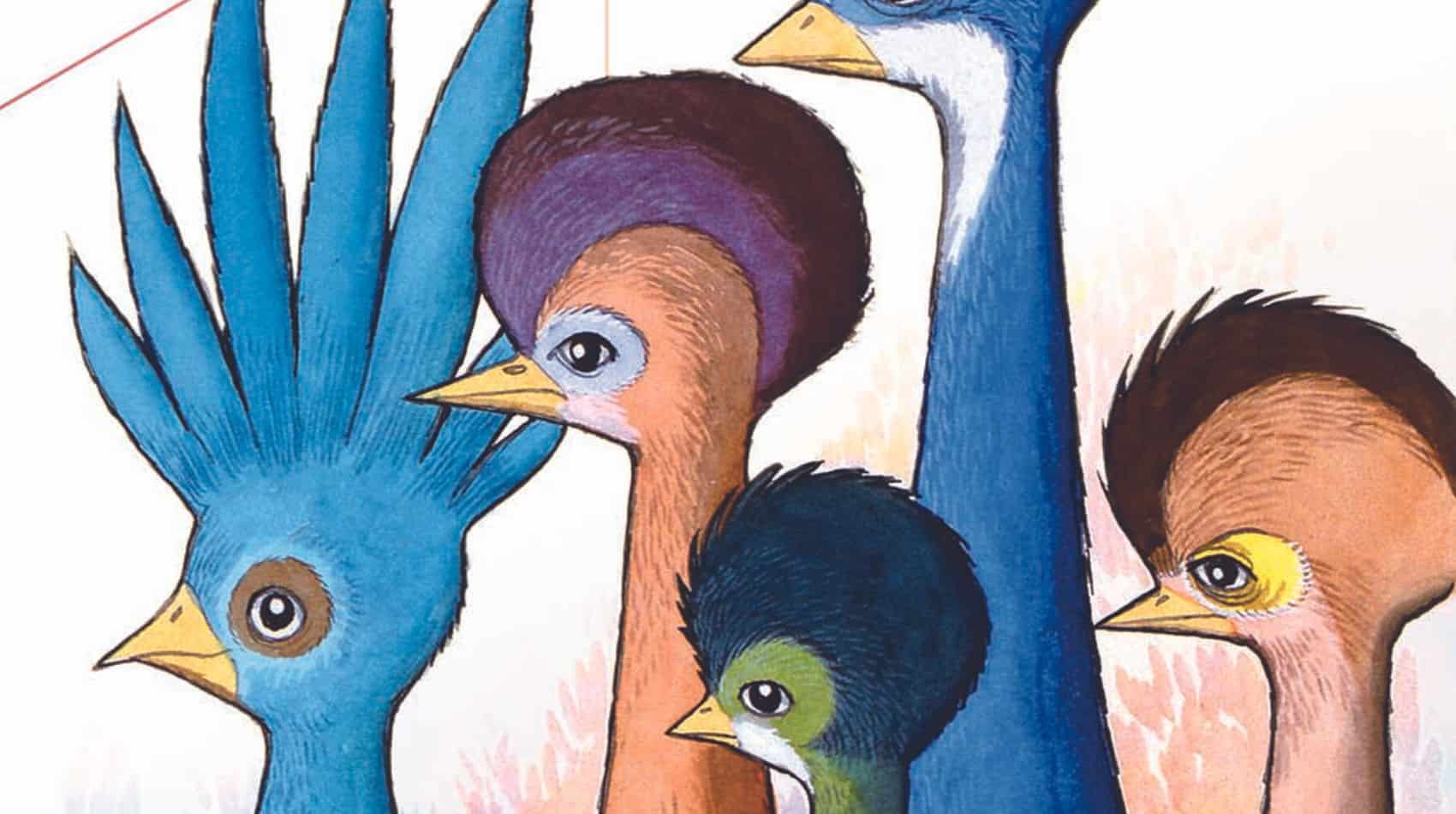After a mostly digital edition in 2020 the London Korean Film Festival (LKFF) is pleased to be returning to cinema screens across the UK's capital for its 16th year, running from 4 – 19 November 2021. With the biggest programme dedicated to Korean cinema outside of the country itself, the festival is proud to present a rich and diverse line-up showcasing the year's biggest box-office hits, independent cinema, women's voices, animation, documentary, award winning shorts, plus a Special Focus celebrating the career of iconic actor and 2021 Academy Award winner Youn Yuh-jung.
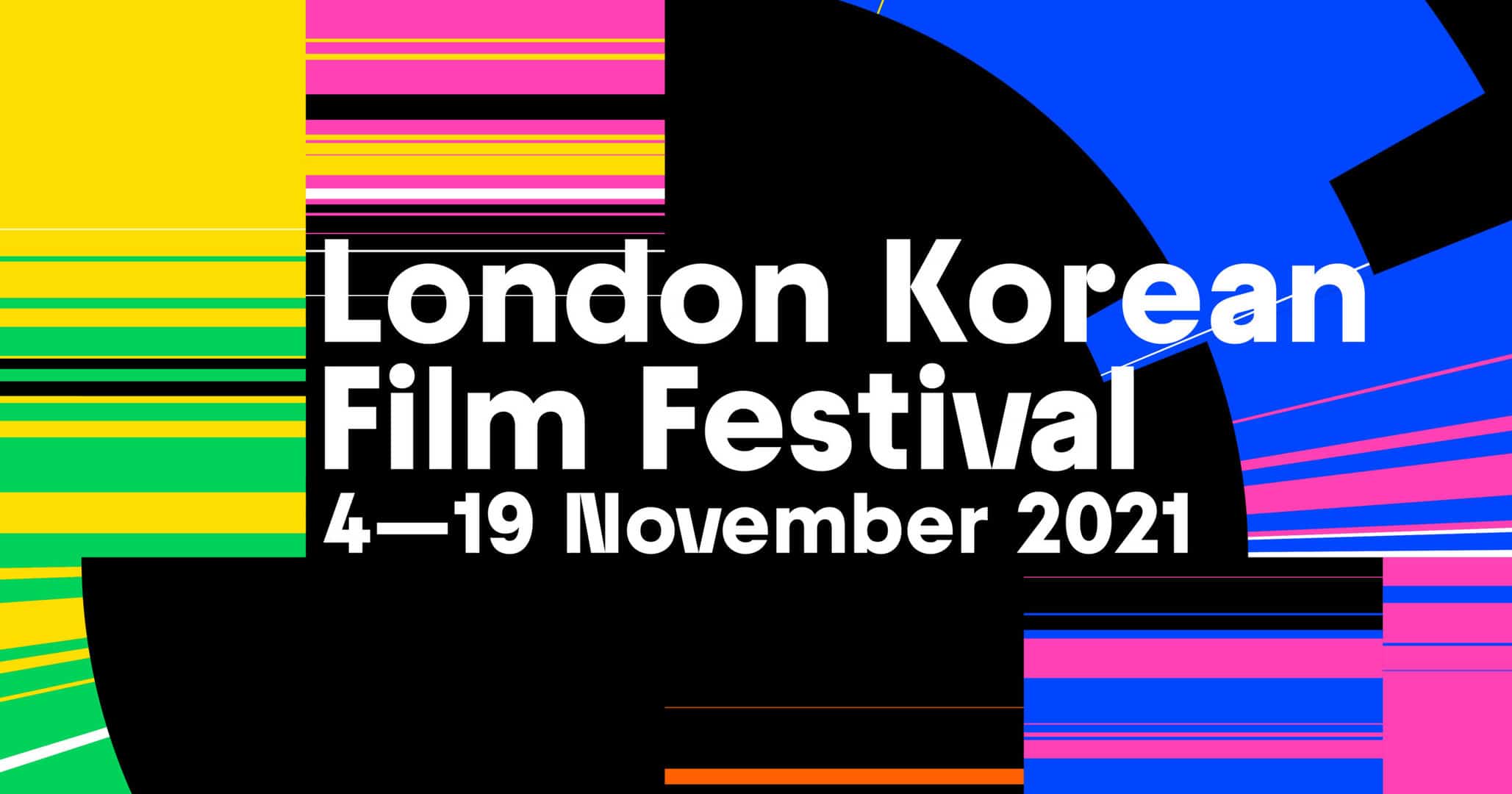
This year's LKFF will begin on 4 November with an exciting Opening Gala from action cinema maestro Ryoo Seung-wan (The City of Violence, 2006; Veteran, 2015), one of Korea's biggest directors of blockbuster smash-hits, the UK Premiere of action-packed true-life political drama, Escape from Mogadishu (2021). Set in the capital of Somalia during the country's 1991 Civil War, the film centres on the staff of the South Korean embassy who become trapped as war rages on the streets around them. Stranded and under fire, the group are approached by their counterparts from the North Korean embassy. Opting for an unlikely team-up, they make an audacious plan to reach the airport and escape the country. The film stars Kim Yoon-suk (The Chaser, 2008), Zo In-sung (The King, 2017) and Huh Joon-ho (The Merciless, 2017) and skyrocketed up the charts on its Korean release this year, surpassing 3 million admissions within a month to become the highest grossing film of 2021. The festival's Closing Gala on 19 November will be the UK Premiere of Im Sang-soo's Heaven: To the Land of Happiness (2020). Invited to screen at Cannes in 2020 and set to open Busan International Film Festival in October, this screening offers an early look at the latest work from an internationally renowned director to a London audience. Starring Choi Min-sik (Oldboy, 2003; I Saw the Devil, 2010) and Park Hae-il (The Host, 2006; Memories of Murder, 2003) and featuring the festival's Special Focus star Youn Yuh-jung in her fourth collaboration with director Im, the film is a warm-hearted road trip that follows two men, one an escaped convict, who get their hands on a large sum of money and take to the road dreaming of how they can use the cash to better their lives. A knockabout crime caper on its surface, with captivating action set-pieces involving both the cops and the gangsters that are hot on the heels of the mismatched pair, the film reveals itself to be a thought-provoking meditation on life and happiness as it takes us on a journey down its twisting roads.
Following the historic Academy Award wins of Bong Joon-ho's Parasite (2019), the depth of talent within Korea's screen industry has continued to be highlighted on the international stage this year. Not only has Netflix's recent TV phenomenon Squid Game (2021) taken the ‘#1 show' spot in over 90 countries around the globe, but further awards success arrived earlier this year when veteran actor Youn Yuh-jung picked up Best Supporting Actress Awards at both the Oscars and the BAFTAs for her role in Minari (Lee Isaac Chung, 2020). With these momentous award wins and her incredible performance still fresh in the minds of UK film fans, not to mention her unforgettable acceptance speeches, the LKFF is inviting audiences to take a deep-dive into the back-catalogue of this extraordinary actor with the strand Special Focus: Youn Yuh-Jung. This programme will draw from across Youn's career with retrospective screenings to present a comprehensive look at one of Korea's most celebrated performers.
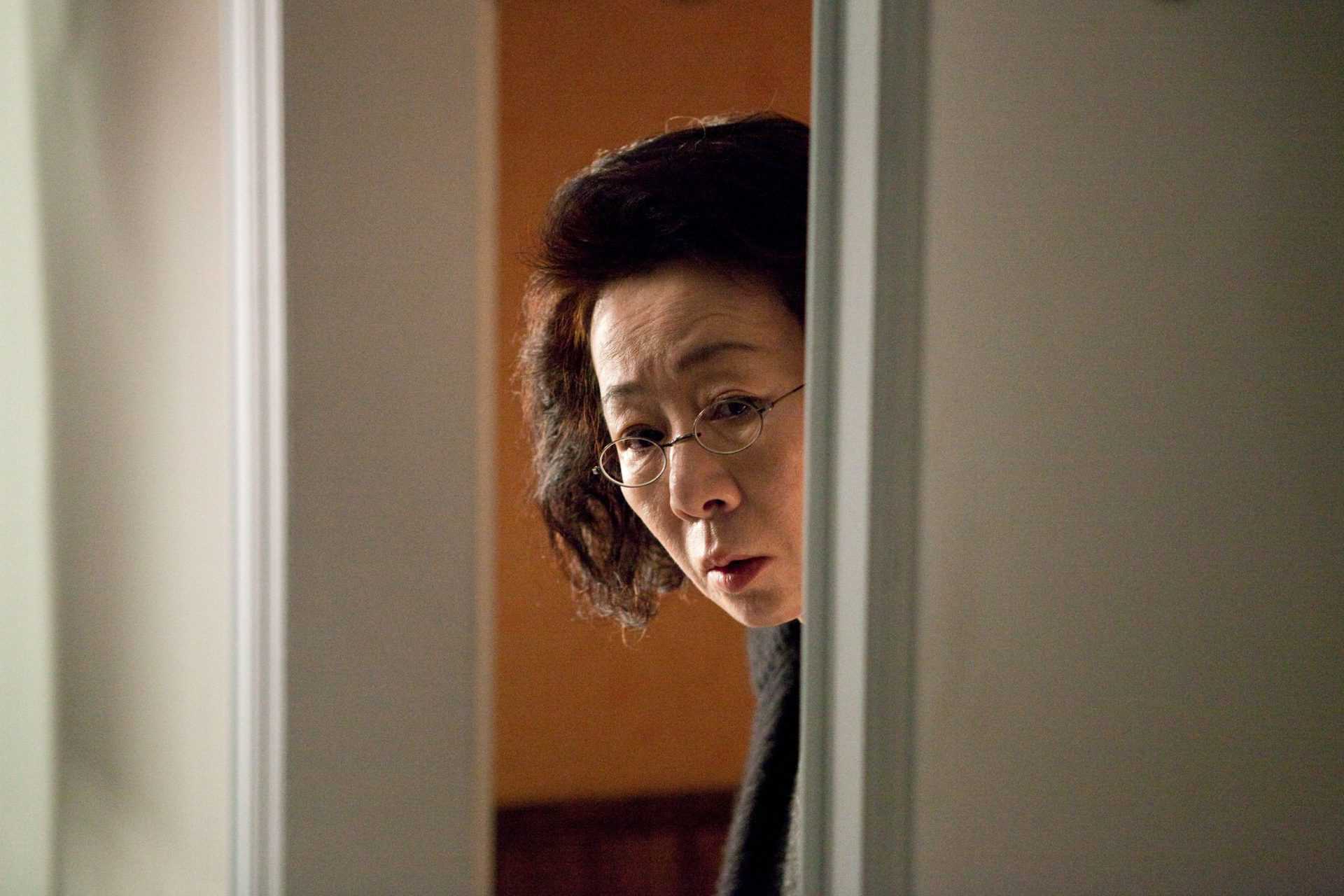
Headlining the strand is a newly restored classic from the inimitable auteur Kim Ki-young. The “genius” director who was thanked during Youn's Oscars acceptance speech proved instrumental in her career by giving the young actor her first screen role, and trusting her as the lead, in Woman of Fire (1970), presented here as a European Premiere of a brand new digital restoration. Appearing on the big screen for the first time in 50-years and infused with idiosyncratic filmmaker Kim Ki-young's typically audacious use of colour, this intense thriller provided a bold introduction to a dynamic new screen presence in Youn Yuh-jung. Playing a housemaid who sets about dismantling a family's fragile respectability by targeting her married boss, this audacious film is a remake of the director's 1960 masterpiece, The Housemaid. Youn's collaborations with acclaimed director Im Sang-soo will also be highlighted. The Housemaid (2010), nominated for the Palme d'Or at Cannes, is Im Sang-soo's own interpretation of Kim Ki-young's classic, a sleek and sexy thriller and a scathing attack on the upper class. This time Youn takes the role of an elder live-in maid of a billionaire family. After employing a young woman, played by star Jeon Do-youn (Secret Sunshine, 2007), as an au pair, a tragic chain of events ensues when she is seduced by the husband of the family (Lee Jung-jae, Squid Game, 2021). A Good Lawyer's Wife (2003), which earned director Im a nomination for Venice's prestigious Golden Lion, sees Youn playing a woman who finds sexual fulfilment outside of her marriage to a dying alcoholic, while her son (Hwang Jung-min, The Wailing, 2016) and daughter-in-law (Moon So-ri, Oasis, 2002) also seek satisfaction through marital transgressions. Heart-wrenching melodrama Canola (2016) finds Youn playing grandmother Hong Gyechoon who lives on rural Jeju island, working with the other local women as a diver and taking care of her beloved granddaughter Hyeji. After the little girl disappears, Grandma Hong is left heartbroken until one day many years later a troubled teen from the city is discovered, claiming to be the lost child. But not all is as it seems… In director E J-yong's 2016 festival favourite The Bacchus Lady (2016) Youn takes the lead as an elderly sex-worker who struggles to care for the troubled souls around her while nursing her own tragic past, while the International Premiere of “Documentary Youn Yuh-Jung” (2021) has collaborators and colleagues past and present pay tribute to the star in the wake of her incredible Academy Award win.
Cinema Now offers audiences the chance to discover a diverse selection of contemporary titles from the past 12-months. This eclectic strand presents films across a range of styles and genres, from stylish cinema hits to powerful new works by boundary-pushing filmmakers. First up, the LKFF's annual presentation of the latest fresh-from-Cannes work of much-loved auteur Hong Sangsoo, In Front of Your Face (UK Premiere, 2020) sees the director reunited with actor Kwon Haehyo and his The Day After (2017) co-star Cho Yunhee. Teasing new depths out of a familiar scenario and cast, Hong's film tells the story of an actress looking to refresh her career after a lengthy stay abroad and her meeting with a movie director looking to cast her in his next film. Aloners (UK Premiere, 2021), the directorial debut of Hong Sung-eun, claimed the Grand Prize at Jeonju International Film Festival 2021 and earned further acclaim at Toronto and San Sebastian International Film Festival 2021. With a sensitive and absorbing central performance from Gong Seung-yeon, the film peels back the layers of angst and loneliness of a young woman who has actively shut herself off from the world, including those closest to her. The Book of Fish (UK Premiere, 2021) is the latest sweeping, sumptuous epic from the modern specialist of the historical drama, Lee Joon-ik (The Throne, 2015; Dongju: The Portrait of a Poet, 2016), and stars Sul Kyung-gu (Oasis, 2002; Peppermint Candy, 1999) as a scholar exiled to an island, who trades his knowledge in Confucianism with a fisherman in order to write an epic book about the sea. Two titles highlight the work of director Kim Jong-kwan; Shades of the Heart (European Premiere, 2021) follows an author, back in Korea after separating from a wife in England, as he reflects on some of life's bitter truths via interactions with friends and colleagues across four interconnected chapters, while Josée (UK Premiere, 2020) based on Japanese short story Josee, the Tiger and the Fish, traces the romance which blossoms between a young student and the mysterious title character (Han Ji-min, The Age of Shadows, 2016) who tells fanciful, improbable stories about her life. In bitter-sweet comedy-drama Spring Song (European Premiere, 2021) director and star Yu Jun-sang (also a real-life member of the band featured in the film, ‘J and Joy 20') plays a singer who heads off to Japan with his guitarist to make a music video with nothing more than the tune to the song in their heads, director Park Jung-bae's box-office hit Collectors (UK Premiere, 2020) is a crime adventure in which a crooked team of treasure hunters including a gentleman thief (Lee Je Hoon, The Phantom Detective, 2016) and an unethical archaeologist (Jo Woo Jin, The Drug King, 2018) attempt to steal an ancient artifact from the heart of Gangnam, Seoul. Recalled (UK Premiere, 2021) from director Seo You-min (The Last Princess, 2016) is a dark and mysterious thriller in which a woman suffers a head injury that leaves her with clairvoyant powers and no memory of her husband.
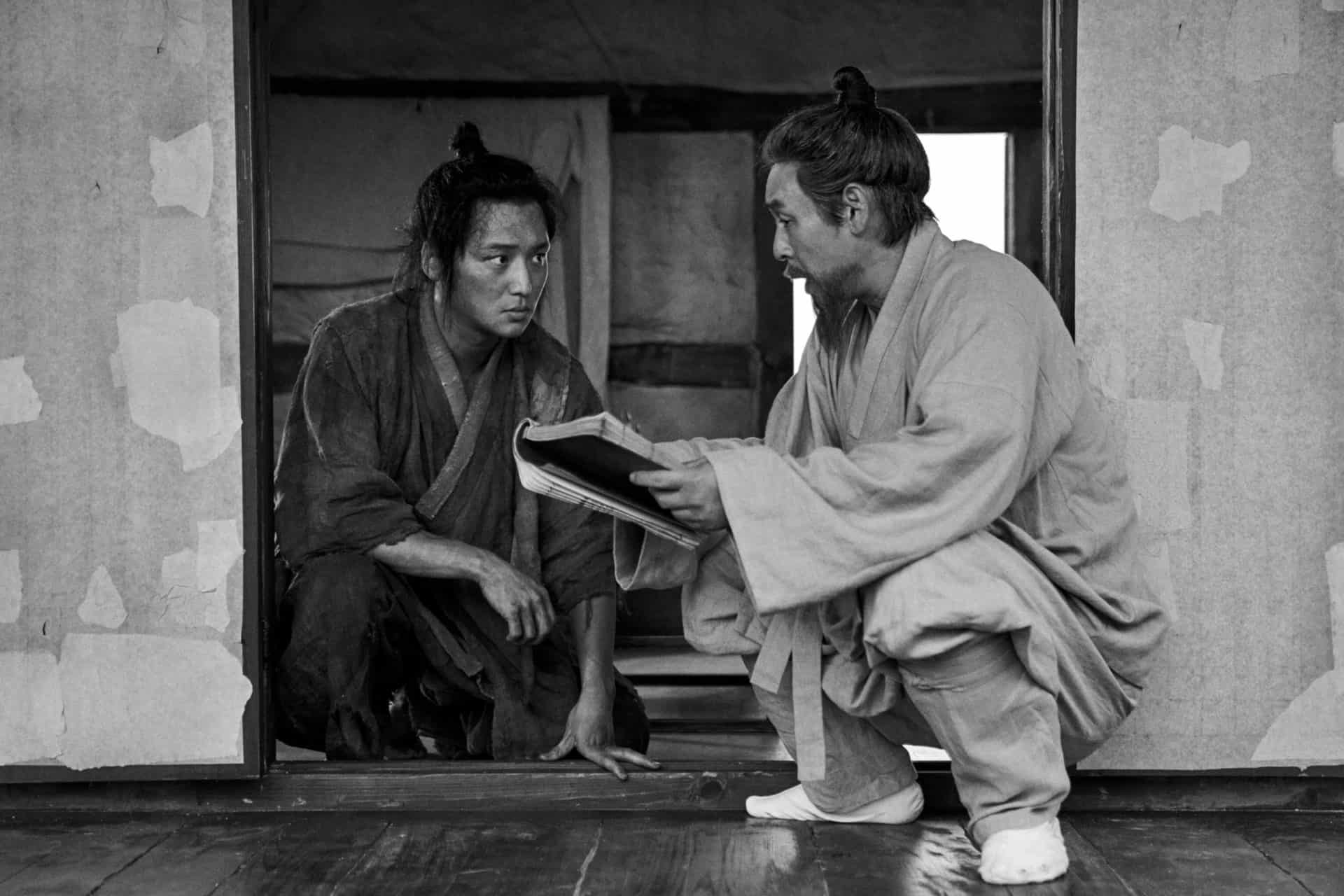
in THE BOOK OF FISH
Shining a light on significant works to have risen out of the independent film sector, Indie Talent is a showcase for fresh new voices and up-and-coming filmmakers making their mark. Co-directors Lee Seunghwan and Yoo Jaewook mine their own experiences as teenage rappers in the semi-autobiographical Limecrime (UK Premiere, 2020) which takes viewers on a journey into Korea's hip-hop scene as two wannabe rap stars try to find their voice. LGBTQ+ romantic comedy Made on the Rooftop (UK Premiere, 2020) from director Kimjho Gwang-soo charts the relationship dramas of two men: Haneul who is forced to move out after pushing his previous boyfriend too far, and video influencer Bongsik who's online confidence masks his deeper social insecurities. Director Kwak Min-seung's Covid era-set realist film Rolling (UK Premiere, 2021) observes the minutiae of everyday pandemic life when a young woman is forced to take over her mother's kimbap shop after a family tragedy. Lastly Awoke (International Premiere, 2020) is an eye-opening and confrontational insight into society's treatment of the disabled, charting the bureaucratic nightmare of a man in dire need of government support, who is forced to prove his level of disability when deemed fit to work. Produced and directed by a crew made up of both able-bodied and disabled members, the film reflects their real-life experiences as well as that of the broader disabled community, following significant outreach work on the part of the production team.
While new works by women filmmakers are presented across the LKFF programme, this representation is focused in the Women's Voices strand which is programmed in collaboration with the Seoul International Woman's Film Festival and presents two powerful features from filmmakers creating their own space within Korea's indie film landscape. Receiving its International Premiere, After Me Too (2021) is a documentary which looks at the impact of the #MeToo movement on Korean society via a series of short films from a quartet of women directors, Park Sohyun, Lee Somyi, Kangyu Garam and Soram, who explore the lives and voices of women activists and filmmakers with a focus on how patriarchy and structural sexism is being tackled today. After making a name for herself with a series of highly-regarded shorts, director Lee Woo-jung makes her feature debut with Snowball (UK Premiere, 2021) which screened at Busan and won the Rising Star Award at the New York Asian Film Festival. The film looks at the complex and changing relationships within a trio of 18-year-old girls who, tired of feeling like they don't belong, build up the courage to run away from home.
The Documentary strand presents two works, chosen by programmers from Birkbeck Institute for the Moving Image's Essay Film Festival, which focus on labour issues and uprisings, highlighting wider Korean history, social change and activism through the turmoil experienced by their subjects. Sister J (UK Premiere, 2020) is the name director Lee Soojung affectionately gives to middle-aged factory worker, Lim Jaechun. Unexpectedly fired from his job of 30-years, Lim now creates activism through art as he sings, writes and performs to raise awareness of his plight in a prolonged fight for justice. Director Lee Hyukrae and Kim Jungyoung's moving documentary Sewing Sisters (International Premiere, 2020) reunites a group of women who went from their countryside homes to live and work at the sewing factories of Seoul under appalling, exploitative conditions while still in their young teenage years. Finding their voices and becoming politicised, these girls formed unions and held protests but were met with fierce, violent opposition by both the industry and government.
Representing the Animation strand is director Kim Hye-mi's dark body-horror Climbing (UK Premiere, 2021), an incredible 3D animated work that incorporates a woman's pregnancy fears into a twisted fever dream. The film centres on a professional climber, Choi, who is on the verge of competing in the World Championship when she discovers she is pregnant. Grappling with the news, the climber begins to receive horrifying text messages from a parallel version of herself living an alternate life.
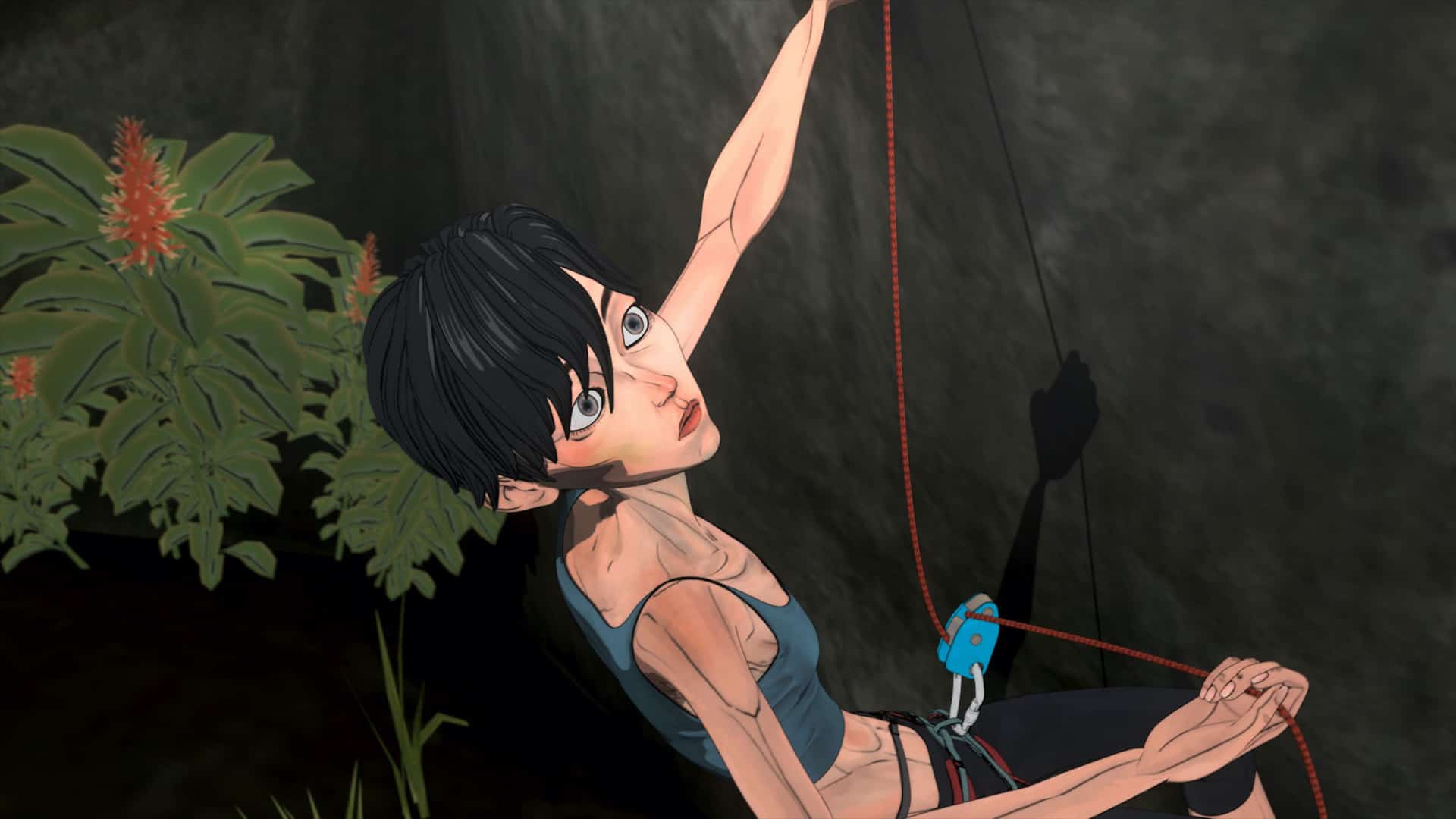
With the upcoming celebration of their 20th anniversary, Mise-en-Scène Shorts strand programmers from the Mise-en-Scène Short Film Festival have put together a very special set of titles representing some of the best short films and most significant directors to have emerged from the festival over the past two decades. From director Lee Kyoung-mi, whose debut feature Missing opened the LKFF in 2016, Feel Good Story (2004) is an award-winning work about an aspiring writer working a stifling office job; The Perfect Fishplate (2005) from The Wailing (2016) director Na Hong-jin finds a chef sacrificing his own body in his quest to create the ultimate culinary experience; director of the award winning Han Gong-ju (2013), Lee Su-jin places a protestor and a policeman alone together in an alley during a violent stand-off in Enemy's Apple (2007); Um Tae-hwa's Forest (2012) finds two boys with contrasting personalities vie for the affection of a girl over the course of a picnic; How to Operate a Polaroid Camera (2004) a short from Kim Jong-kwan, whose features Josée and Shades of the Heart are also being shown at this year's festival, finds a young women struggling to express her feelings through the lens of the precious polaroid camera which belongs to her crush; The Cursed (2010) from Huh Jung, director of horror hit The Mimic (2017), concerns a girl who believes she is cursed and is losing her grip on reality while her brother tries to pull her back from the brink; Jo Sung-hee's Don't Step Out of the House (2009) also finds a brother caring for his sister after their father abandons them with a warning not to leave the basement, but what will they do about food, who are the strange men outside, and why is the parrot spouting obscenities? Lastly, Kang Jin-a brings us back to the real world in Be With Me (2009) as a man struggles over his feelings for the friend he's fallen in love with.
Presented in partnership with LUX, the UK agency supporting artists' moving image, the Artist Video strand this year focuses on the work of Korean artist Ellie Kyungran Heo with her first UK solo exhibition Plantarians (2017-2020) presented at LUX (6 November – 11 December). Since graduating from the Royal College of Art in London in 2015 Ellie Kyungran Heo has exhibited in London, Sao Paulo and Seoul and her gentle, elusive and nuanced work considers the ethics of coexistence through careful and intentional framing of the everyday. Plantarians was first screened at LUX in 2017 and this new iteration will feature a collection of short films alongside photography and video installations, accompanied by a commissioned essay and public programmes.
For further information and announcements HERE


